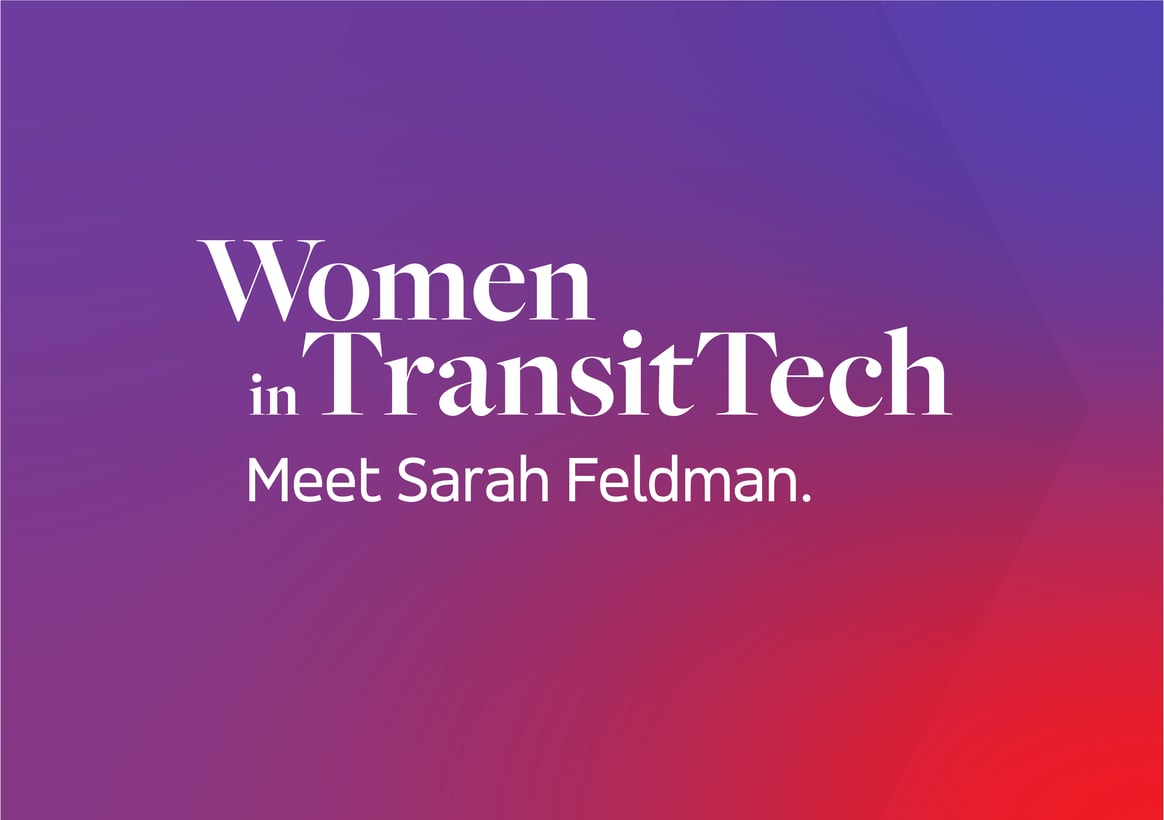Challenging the status quo takes diligence, determination, and vision — especially when it comes to an industry that hasn’t seen a seismic shift since the automobile was invented. And, as it turns out, it’s often women who choose to challenge these norms. In honor of International Women’s Day and throughout the month of March, Via is proud to profile a number of changemakers driving real innovation in their communities and inspiring their peers. Enjoy the story below, and then check out the rest of the series here.
Sarah Feldman is the Director of Planning and Scheduling of Edmonton Transit Service in Alberta, Canada. She has held a variety of roles in municipal government related to long-range planning, sustainability policy, and strategy development. Sarah’s work has spanned a variety of fields including land use and transportation planning, waste management, district energy, and sustainability policy.
Since joining the City of Edmonton in 2015 to lead the development of Edmonton’s Transit Strategy, Sarah has been instrumental in articulating the strategic direction for transit. A registered professional planner, she holds a Bachelors in Environment and Development from McGill University and a Masters in Urban Planning from the University of Montreal.
What did 10-year-old Sarah want to be when she grew up? How did you evolve from there to your current position in transportation? I wanted to be a writer and poet! So, while that didn’t turn out quite as expected, I do use my writing skills often to inform and advise decision makers. I also always loved maps and atlases, so that more clearly translated into my career path in transportation and land use planning.
What do you think are the most important qualities in a leader? Are there any leaders in particular you look up to? I value leaders who listen with compassion, use what they hear to make decisions, and are able to explain to their teams how they arrived at that decision. While I can’t say I have any specific leaders that I look up to, I admire many qualities of my mentors and peers, and I try to emulate their behaviours in my own leadership style.
What are the big transit challenges in your community that your team is solving with innovative mobility projects? Edmonton is addressing two major challenges with innovative mobility projects: The first-and-last kilometer problem and climate change mitigation. Our new bus network will create more direct, frequent, and reliable service, but this has also meant increasing walking distances in some areas.
To address this challenge, we are implementing one of the largest on-demand transit solutions in North America. We are also addressing climate change by introducing 40 battery-electric buses in our fleet and continuing to expand our zero emission bus fleet over the coming years.
In your view, what’s the biggest challenge the transportation industry as a whole will have to tackle in the next 2-5 years? The transportation industry will need to grapple with what the future of sustainable mobility looks like in a post-COVID world. The pandemic has shifted choices for where people live and work, and this is against a backdrop of continued evolution towards greater automation and shared mobility services. The transit industry will need to adjust and adapt in order to provide excellent choices for customers that are an attractive alternative to single-occupant vehicle travel.
Tell us about a defining moment in your professional life that has helped guide you on your path. Around seven years ago I participated in a leadership program for youth working to make change in their communities. Through that program, I realized I wanted to shift and focus my career on sustainable transportation and transit planning. Perhaps this demonstrates the power of setting personal intentions — because, shortly after, I was successful in shifting into transit policy and planning.
And finally, what drives you? (Pun intended!) I care deeply about climate change, and this has been a driving force behind my education and career choices. Early in my career, I decided to focus this passion into the form of our cities and transportation systems. I am also excited by leading teams through big, challenging projects — with a healthy dose of public debate!




